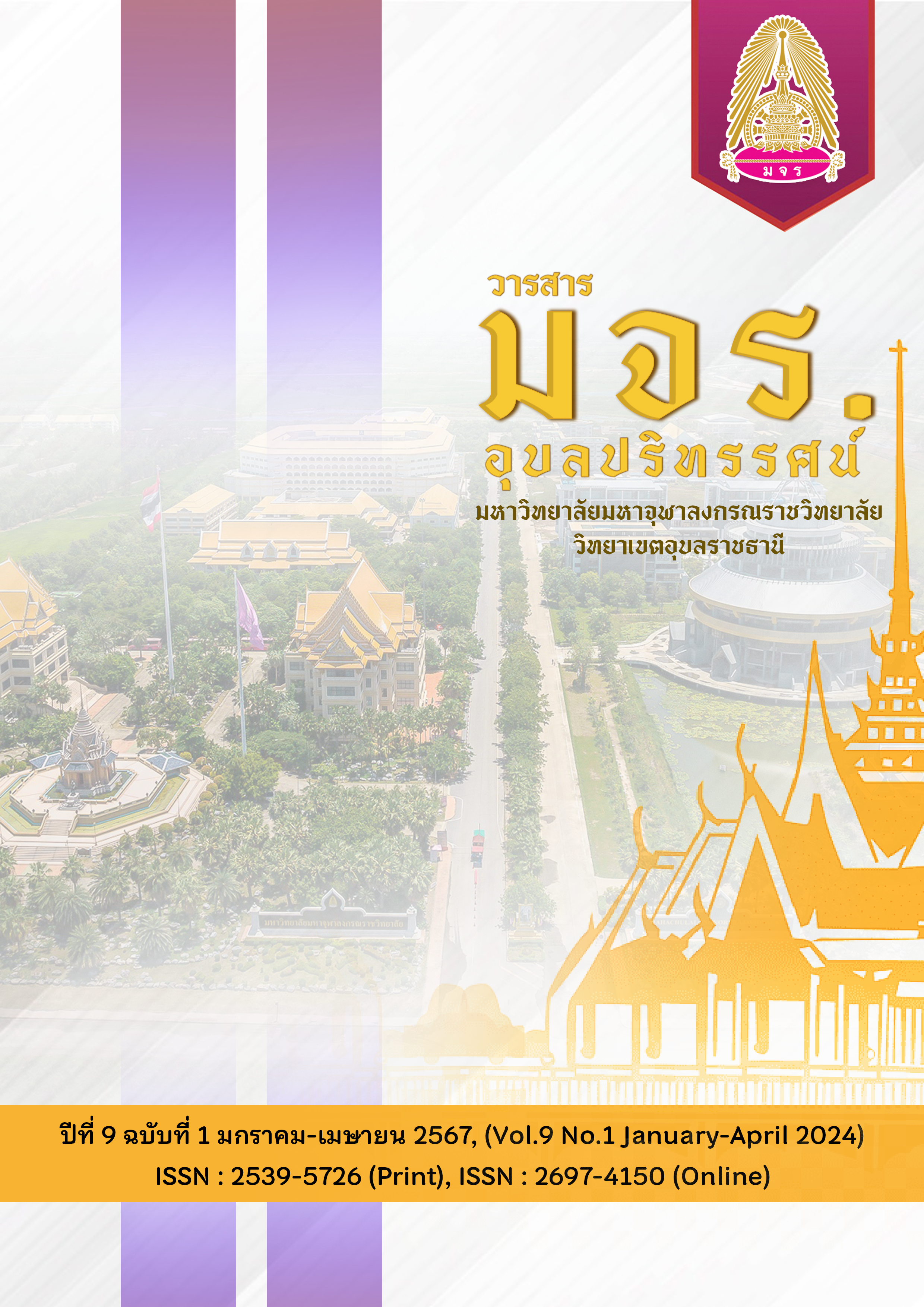THE EFFECTIVENESS OF STORYTELLING PRACTICE ON THAI GRADE 6 STUDENTS’ USE OF THE PRESENT AND THE PAST SIMPLE TENSES
Main Article Content
บทคัดย่อ
Abstract
The purposes of this research were (1) to examine whether using storytelling activity to practice the use of the present simple tense and the past simple tense would be more effective than using the conventional method where students practiced the target tenses using conventional grammar exercises, and (2) to survey students’ opinions on the use of storytelling as a language practice. The participants were 40 grade 6 Thai students from two primary schools in Surin, Thailand. The participants were divided into two groups: 1) the storytelling group taught through explicit grammar teaching and practiced with storytelling and 2) the conventional group taught through explicit grammar teaching and practiced with grammar exercises. The research instruments consisted of a pre-test, a post-test, and an opinion questionnaire about the use of storytelling as a language practice. The pre-test and post-test were the verb transformation test with a total of 35 items. Statistical results show that either method could help learners use the present and the past simple tenses significantly more correctly (p < 0.001), and there was no significant difference between the two methods in improving the learning of the two target tenses (p > 0.05). In addition, the results of the questionnaire analysis revealed that overall student opinion about using storytelling as a language practice was positive. Students enjoyed the lessons and had more confidence in telling stories in English. Suggestions for teaching and future studies are provided.
Article Details
เอกสารอ้างอิง
Atkinson, R. C., & Shiffrin, R. M. (1968). Human memory: A proposed system and its control processes. Psychology of learning and motivation: Advances in Research and Theory, 2, 89-195.
Farzaneh, K. & Mahmood, H. (2016). A story-telling approach to teaching English to young EFL Iranian learners. English Language Teaching, 9(1), 221-234.
García, F. V. (2017). Storytelling and grammar learning: A study among young-elementary EFL learners in Columbia. International Journal of English and Education, 6(2), 63-81.
Hassan, S. & Mahkameh, A. (2013). The effect of storytelling on children's learning English vocabulary: A case in Iran. IRJABS, 4(11), 4005-4011.
Inal, H., & Cakir, A. (2014). Story-based vocabulary teaching. Procedia - Social and Behavioral Sciences, 98, 675 – 679. Retrieved from: https://pdf.sciencedirectassets.com/
Isbell, R., Sobol, J., Lindauer, L., & Lowrance, A. (2004). The effects of storytelling and story reading on the oral language complexity and story comprehension of young children. Early Childhood Education Journal, 32(2), 157-163.
Iwasaki, S., & Ingkapirom, P. (2005). A Reference Grammar of Thai. Cambridge: Cambridge
University Press.
Kanchanawan, N. (1978). Expression for time in the Thai verb and its application to Thai-English machine translation. (Doctor’s thesis). The University of Texas at Austin.
Lattimore, D.N. (1996). Storytelling. Legacies using children’s literature in the classroom. Harpar Collins: College Publisher, 1996.
Marton, W. (1988). Methods in English Language Teaching: Frameworks and Options. Hemel
Hempstead: Prentice Hall.
Schmidt, R. (1990). The role of consciousness in second language learning. Applied Linguistic, 11, 129- 158; June.
Schmidt, R. (1995). Consciousness and foreign language learning: A tutorial on the role of attention and awareness in learning. In R. Schmidt (Ed.), Attention and awareness in language learning (pp. 1-63). Honolulu: Second Language Teaching and Curriculum Center, University of Hawaii.
Schmidt, R., & Frota, S. (1986). Developing basic conversational ability in a second language: A case study of an adult learner of Portuguese. In R. Day (Ed.), Talking to learn: Conversation in second language acquisition (pp. 237-326). Rowley, Massachusetts: Newbury house.
Srihasarn, G., & Wuttipornpong, T. (2013). Using storytelling to facilitate L2 vocabulary learning and retention: A case study of a secondary school in Thailand. Journal of Liberal Arts Ubon Ratchathani University, 9(2): 283-315.
Srisa-ard, B. (2002). Preliminary research (7th Ed.). Bangkok: Suviriyasan.
Swain, M. (1998). Interaction and second language learning: Two adolescent French immersion students working together. The Modern Language Journal, 82, 320-337.
Swain, M. (2005). The output hypothesis: theory and research. In E. Hinkel (Ed.), Handbook of
research in second language learning. Applied Linguistics, 16, 371-391.
Tachom, K. (2021). Enhancing Thai EFL students’ EFL vocabulary knowledge through the use of task-based language teaching and storytelling technique adopting Thai folktales. Asian Journal of Education and Training, 7(4), 235-243.


